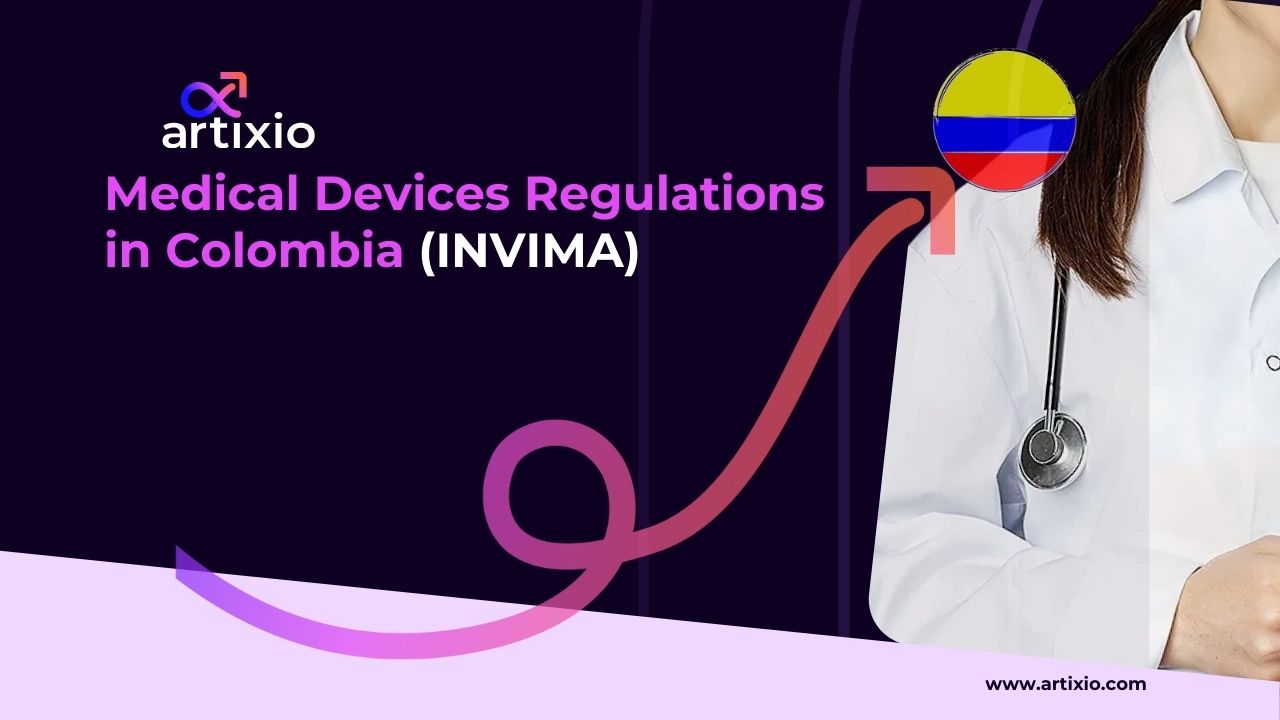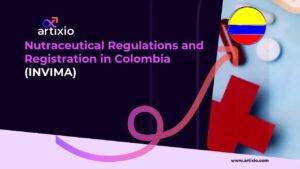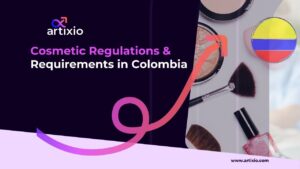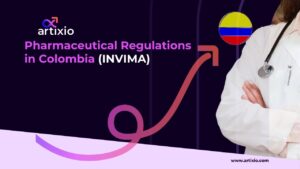In Colombia, The National Food and Drug Surveillance Institute (INVIMA – Instituto Nacional de Vigilancia de Medicamentos y Alimentos) is the regulatory authority that governs the medical device sector. Colombia is focusing on improving its healthcare system and an integral part of it is INVIMA medical device regulations that are set out to make sure the rise of only safe, effective medical devices. INVIMA medical device classification is similar to the EU and INVIMA also allows international standards like the ISO 13485.
Let us get to know about Colombia medical device regulations, registrations, renewal of the medical devices and more.
Medical Device Regulations & Registration in Colombia
Colombia Regulatory Authority
The Colombian National Food and Drug Surveillance Institute (INVIMA) is the primary regulatory authority responsible for the medical devices regulations in Colombia. As a decentralized public entity under the Ministry of Health and Social Protection, INVIMA plays a key role in ensuring that all medical devices distributed and used in the country meet strict standards for safety and quality.
Columbia Medical Device Regulations
Some key INVIMA regulations that apply for medical devices marketing in Columbia are given below:
- Resolution 8430/ 1993
- Resolution 4002/ 2007
- Decree 4725/ 2005
- Decree 3275/ 2009 (modification of 4275/2005)
- Decree 582/ 2017
- Resolution 4816/ 2008
- Decree 2378/ 2008
Medical Devices Classification in Colombia, INVIMA
The medical devices are classified based on the risk system. The classification system is similar to the European Union and other GHTF (Global Harmonization Task Force) systems. Medical devices are classified into 4. They are as follows:
| CLASS | RISK LEVEL |
| Class I | Low risk |
| Class IIa | Moderate risk |
| Class IIb | High risk |
| Class III | Very high risk |
The classification categories in Colombia are as follows:
a) Class I: This category encompasses low-risk devices, such as bandages, non-invasive instruments, and non-sterile gloves.
b) Class IIa: Devices with a moderate level of risk fall into this category. It includes certain surgical instruments, diagnostic devices, and reusable syringes.
c) Class IIb: Higher-risk devices, including implantable devices, specific types of catheters, and high-risk diagnostic devices, are classified under this category.
d) Class III: This is the highest-risk category, comprising devices that pose a significant risk to patients, such as life-supporting or life-sustaining equipment.
GMP Certificate For Medical Devices In Colombia
For local manufacturers there are no regulations on GMP, they just have to comply with the medical device’s technical sanitary conditions that apply to their specific products. Even for foreign manufacturers, a GMP certificate is not required.
However, they must be in compliance with all the necessary conditions that guarantee the quality of the product. Apart from this, the wholesalers and distributors of medical devices should comply with respective decree/resolution that states about storing and handling of medical devices.
Medical Pre-registration Requirements by INVIMA
For products that have not obtained a Marketing Authorization in other countries or for devices for which the classification is not clear, then a prior evaluation must be done with INVIMA’s Medical Device Reviewing Commission.
Colombia Medical Device Registration Process, INVIMA
Prior to being marketed and sold in Colombia, medical devices are required to undergo a Medical devices registration process. This process is overseen by the Colombian National Food and Drug Surveillance Institute (INVIMA), the regulatory authority responsible for ensuring compliance. The registration procedure entails submitting comprehensive documentation and evidence that establishes the medical device’s safety, efficacy, and quality standards.
For low-risk class I and class IIa devices, the INVIMA requires notification. It also requires a Free Sales Certificate (FSC) in the country of origin or from reference countries like the US, European Union, Japan, Australia and Canada. In other words if your device belongs to a lower risk classification, the device will undergo an expedited review process.
Speaking of class IIb and class III medical devices, INVIMA conducts a legal and technical review of the application and issues an administrative act. The provision of Decree 3275/2009 approves the following documents for Class IIb devices.
- Technical studies and analytical verifications
- Sterilisation methods
- Disposal methods
- Clinical Studies
INVIMA Clinical Trial Requirements For Medical Devices
Medical devices are classified based on risk level which means that there are devices with low risk as well as high risk. Low risk devices might not need clinical trials but that won’t be the case with high-risk devices. Since high-risk devices have the potential to harm human life it is important to generate safety evidence which can be done through the conductance of clinical trials. The clinical research before its initiation must be registered with INVIMA
For clinical trials of medical devices, first the ethics committee of the research site where the trial is being conducted must approve followed by the Medical Device Reviewing Commission of INVIMA. The requirements for requesting evaluation includes:
- Application letter for trial protocol approval.
- Local health authority approval which confirms the investigation centre is suitable for providing health services.
- Problem formulation
- The theoretical framework
- Research summary
- Information of the medical device and safety tests
- Objective, methodology and hypothesis details of the trial.
- Ethical considerations
- Project management details and bibliographic references (in Vancouver style)
The results of each clinical investigation, whether favourable or unfavourable, must be reported to INVIMA. Once the clinical trial has completed, the INVIMA must submit quarterly reports to the MoH with a copy of the results of clinical study.
Legal Representation For Medical Devices
For foreign manufacturers, an authorised representative must be appointed in Colombia. Since they are not familiar with the Colombian market and some other obstacles like the language barrier will require the need for an authorized representative.
INVIMA Labelling Requirements For Medical Devices
The general labelling requirements for medical devices include:
- Generic name or brand of the product
- Manufacturer Address
- Name and address of the importer or authorised representative, marketing permit and registration number: For imported devices
- Patient/user population
- Instruction for use
- Manufacturing and expiration date (when applicable)
- Serial/ lot number
- Storage/handling instructions, warnings, adverse effects (if applicable)
The label must be in the Spanish language.
Impact of EU/US Approvals on Registration
Medical devices that have prior approval from the FDA or EU (CE mark), there is an independent approval process in South America (which includes Colombia). A Certificate to Foreign Government (CFG) or a Free Sales certificate (FSC) obtained from the country of origin includes the product description with specific product numbers and identifies the manufacturing site.
These certificates state that the product is approved for sale in its country of origin. This allows the import of medical devices into South America.
Testing Requirements
To market a medical device in Colombia, you must first complete the registration process with INVIMA, the country’s regulatory authority for medical devices. The first step in obtaining INVIMA approval is determining the correct classification of your device. Colombia uses a risk-based classification system, similar to the European model, which includes four classes: Class I, Class IIa, Class IIb, and Class III.
Foreign Testing Applicability In Colombia
Foreign testing data may be applicable for registration in Colombia, provided it complies with Colombian regulations and is relevant to the device’s safety and performance. To market your medical device in Colombia, it is essential to obtain a Certificate of Free Sale (CFS) or a Certificate to Foreign Government (CFG) from your home country or from a market recognized by INVIMA.
Import and Distribution Requirements
Medical device importers and distributors in Colombia are required to secure a valid operating license from INVIMA (Instituto Nacional de Vigilancia de Medicamentos y Alimentos). This license is essential to ensure compliance with regulatory regulations and allows businesses to legally import and distribute medical devices in the country.
List of Documents Required by INVIMA
The specific list of documents varies depending on the medical device’s classification and intended use. It generally includes:
- Technical Documentation (Design, Manufacturing, Performance, etc.).
- Clinical Evaluation Report (if applicable).
- Labelling and IFU (Instructions for Use).
- Testing Reports.
- GMP Certificate (if applicable).
Timeline, Validity and Associated Fees
INVIMA has implemented an immediate acceptance process for Class I and IIa device submissions. Manufacturers can begin importing right away upon receipt of the certificate, although the full technical file still needs to be reviewed by INVIMA. This new process helps address the long review times and backlog experienced within the Ministry of Health.
However, Class IIb and III devices must undergo the formal review and approval process. The timeline for approval of Marketing authorization for low-risk devices (Class I and IIa) is a maximum of 1 week and for high-risk devices (Class IIb and III) it is around 300 days.
The MA for medical devices are valid for 10 years and the fee for a MA is around USD 900.
When it comes to registration fees for medical devices in Colombia, the costs are as follows:
- For class I and IIa medical devices, the fee stands at USD 725.
- Class IIb and III medical devices have a slightly higher fee of USD 820.
INVIMA Post-Market Surveillance For Medical Products
Even after the approval of medical devices and their market entry in Colombia, the regulatory activities don’t stop there. There are post marketing activities and post market surveillance is one of them.
- Continuous surveillance is essential to ensure the proper functioning and to detect the new adverse events emerging which couldn’t be detected during the time of tests and trials.
- Programs like the National Techno Surveillance Program allow for the identification, management, evaluation and timely disclosure of the safety information concerning the imported, manufactured and distributed medical devices as well as the in vitro diagnostic reagents in the country. This helps to protect the Colombian public health.
- Adverse event reporting is another major post marketing activity. The adverse events or adverse incidents must be reported to the as per the following:
- i) Serious and unexpected adverse events must be reported within 72 hrs of its knowledge.
- ii) Unserious or unexpected adverse events must be reported within 8 working days.
- Regular audits and inspection, periodic safety update reports, product recall or withdrawal are some other activities that come under post marketing activities.
Renewal Of Medical Devices In Colombia
The same procedure for the product initial registration is followed for issuing marketing Authorization renewal for medical devices. It means that complete technical (Chemistry, Manufacture, Control – CMC) evaluation as well as legal evaluation must be done.
In case, the labelling and the manufacturing processes have not been amended, then the Marketing Authorization (MA) Holder can apply for an automatic renovation as per the Decree 582 of 2017. The filing of the renewal must be three months prior to the date of expiry of MA.
Conclusion:
INVIMA requires only quality medical devices that perform well to enter into the market and reach the consumers. So, complying with the regulations and requirements set forth is crucial for a smooth and expedited medical device approval. Even though there are exemptions for certain requirements depending on the class type, still there is a need to comply with compensatory requirements. So proper comprehension of the regulation is important.
Artixio is here to help you with medical device registration in Colombia. We have regional experts with in-depth knowledge and experience in the INVIMA regulatory processes. We provide regulatory solutions, assist in registration and related activities and will guide you throughout the process. Connect with us through info@artixio.com
FAQ’s
Q. What medical devices must comply with techno-surveillance requirements?
Imported medical devices and medical devices being commercialized as vital and unavailable must comply with the techno-surveillance requirements as per the Resolution number 4816.
Q. What are the reference countries for Colombia?
The reference countries for Colombia are the US, Japan, Canada, Australia and the European Union.
Q. Who should have a CCAA?
The CCAA is the Certificate of Storage and Conditioning Capacity issued by the INVIMA. Importers of medical devices must obtain this certificate. An exception is that importers of vital and unavailable (like during the emergency period of Covid-19) medical devices do not need a CCAA certificate.
Q. What if I can’t determine the exact risk classification of my medical device?
In such cases you can request for a prior evaluation form the Medical Device Reviewing Commission of INVIMA.
References:
- Colombian National Food and Drug Surveillance Institute (INVIMA) – http://www.invima.gov.co/
- Regulations for Medical Devices in Colombia – Resolución 2003/2014 (currently being updated)
- International Medical Device Regulators Forum (IMDRF) – https://imdrf.org/
- ISO 13485:2016 – Medical devices – Quality management systems – Requirements for regulatory purposes




